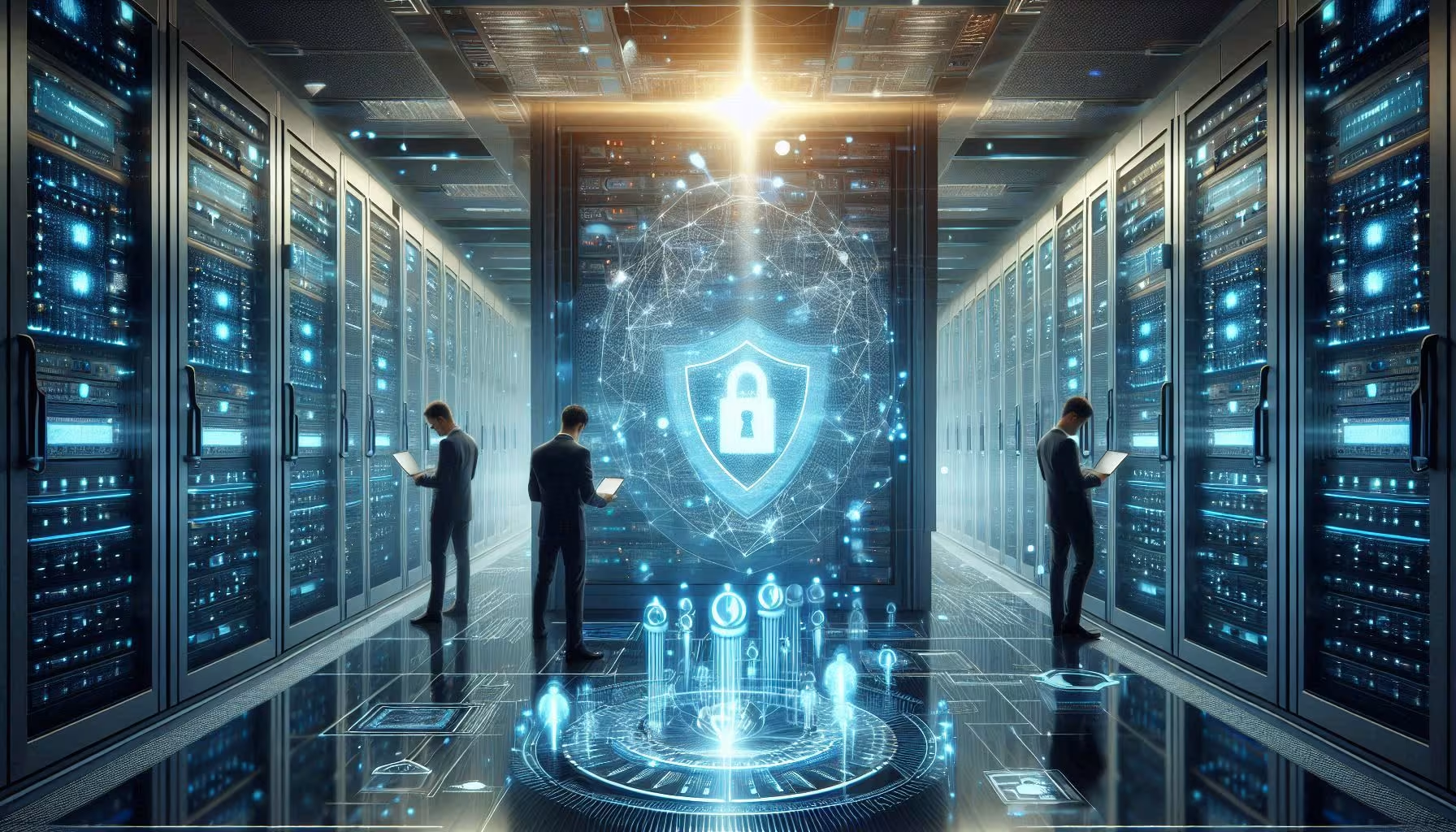Reference:
Reference:
Introduction
How Quantum Computing Is Poised to Disrupt Cybersecurity. The digital world is standing on the edge of a new revolution—quantum computing. Unlike traditional computers that rely on binary code, quantum computers process information using quantum bits (qubits), allowing them to solve complex problems at unimaginable speeds. While this breakthrough brings countless opportunities, it also poses significant threats—especially to cybersecurity.
Cybersecurity as we know it could be rendered obsolete if we don’t act fast.
Read this full article to explore how quantum computing will disrupt current cybersecurity systems, what industries need to prepare, and what solutions are emerging to counteract the risks.
Quantum Computing vs. Cybersecurity
| Category | Traditional Computing | Quantum Computing | Cybersecurity Impact |
|---|---|---|---|
| Processing Power | Linear | Exponential | Faster decryption of data |
| Encryption Algorithms | RSA, ECC | Breakable by Shor’s algorithm | No longer secure |
| Security Readiness | High | Low | Need for quantum-safe systems |
| Data Integrity | Reliable | At risk | Vulnerable to quantum attacks |
| Current Defenses | Firewall, 2FA, SSL | Insufficient | Not quantum-resistant |
Quantum computing is not a futuristic theory—it’s progressing rapidly, and its effects on cybersecurity could be devastating if ignored.
Traditional encryption is the backbone of today’s secure internet—from online banking to government databases.
Unfortunately, quantum computing can break these systems in a fraction of the time it takes classical computers. How Quantum Computing Is Poised to Disrupt Cybersecurity
How Quantum Computing Threatens Cybersecurity
The primary threat lies in its ability to break widely used encryption standards such as RSA and ECC, which are foundational to online security.
• RSA encryption is no match
• Quantum computers use Shor’s algorithm
• Sensitive data could be instantly decrypted
• Long-term encrypted archives are at risk
Industries Most Vulnerable to Quantum Cyberattacks
Some sectors rely heavily on strong encryption and would be most impacted by a sudden breach.
From finance to healthcare, and even national defense—quantum computing presents an unprecedented challenge to every industry.
| Industry | Potential Threats | Urgency to Act |
|---|---|---|
| Finance | Compromised transactions, stolen customer data | Extremely High |
| Healthcare | Patient record breaches, medical fraud | High |
| Government | National security, intelligence leaks | Critical |
| E-commerce | Payment fraud, identity theft | High |
| Cloud Services | Hacked data centers, global service outages | Extremely High |
Cybersecurity must evolve just as fast as quantum computing.
Warning Signs We’re Falling Behind
• Lack of standardized quantum-resistant encryption
• Limited awareness outside tech sectors
• Delayed regulation and policy updates
• Growing interest from cybercriminals and state actors
Preparing for a Post-Quantum World
The race is on to develop post-quantum cryptography (PQC)—encryption algorithms designed to withstand attacks from quantum machines.
Researchers, governments, and private companies are collaborating to build solutions before quantum attacks become a reality.
-
National Institute of Standards and Technology (NIST) Initiatives
NIST is working to establish quantum-safe encryption standards. These algorithms will replace vulnerable ones like RSA and ECC. -
Quantum Key Distribution (QKD)
QKD allows secure communication that’s theoretically unbreakable—even by quantum computers—by using quantum mechanics principles. -
Hybrid Cryptography Models
These models use both classical and quantum-safe encryption to protect data during the transition period. How Quantum Computing Is Poised to Disrupt Cybersecurity -
Corporate Cybersecurity Reforms
Tech giants like IBM and Google are investing in post-quantum security research and encouraging enterprises to update their protocols.
Quantum readiness is no longer optional—it’s a requirement.
How Can Organizations Prepare Now?
Forward-thinking companies are already auditing their cryptographic systems and investing in research partnerships.
Start now by preparing a strategy tailored to your industry’s needs.
-
Conduct a Crypto Inventory
Identify and assess all current encryption methods used in your organization. -
Begin Transitioning to Quantum-Safe Algorithms
Start incorporating hybrid encryption while standards are still evolving. -
Educate Your Teams
Ensure your IT staff is trained in post-quantum security principles. -
Work With Vendors Offering Quantum-Safe Solutions
Choose cybersecurity vendors that are investing in or deploying quantum-resistant infrastructure.
Taking action now could save your organization millions and protect your reputation.
Conclusion: The Time to Act Is Now
Quantum computing holds the potential to reshape the digital world—both for good and for harm. While its promise is vast, so are its risks to current cybersecurity systems.
It’s not a question of if quantum threats will arrive, but when. Organizations, governments, and individuals must begin preparing for the quantum era today to avoid catastrophic consequences tomorrow.
FAQ Section
Q1: Can quantum computers really break all encryption?
Yes, most of today’s encryption methods, especially RSA and ECC, are vulnerable to quantum attacks. However, quantum-resistant algorithms are being developed to counteract this.
Q2: When will quantum computers be powerful enough to cause real damage?
Experts predict within the next 5–10 years, but conservative estimates suggest preparation should begin immediately.
Q3: What is post-quantum cryptography?
Post-quantum cryptography refers to cryptographic algorithms designed to be secure against quantum attacks.
Q4: Are any industries already quantum-secure?
Some government and defense sectors are piloting quantum-safe technologies, but widespread adoption is still in early stages.
Q5: What is Quantum Key Distribution (QKD)?
QKD is a technique that uses quantum mechanics to securely distribute encryption keys. It’s considered unbreakable under quantum physics laws.
The quantum age is coming fast, and cybersecurity must evolve to meet it head-on.

 Open in Chrome
Open in Chrome